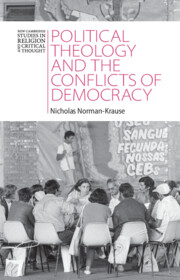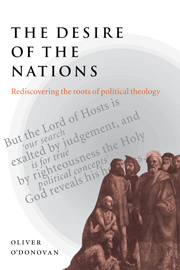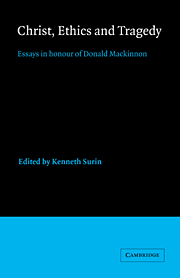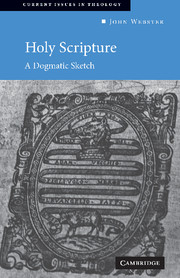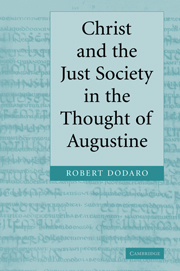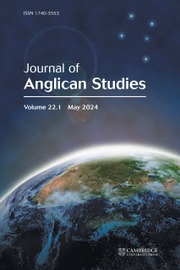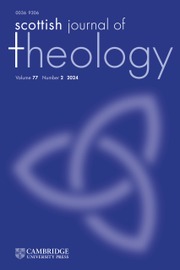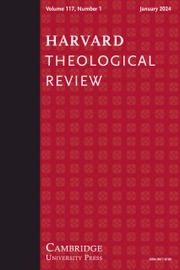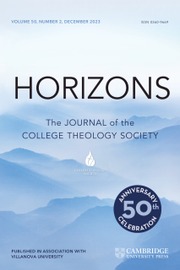Political Theology and the Conflicts of Democracy
Nicholas Norman-Krause argues, in this authoritative and sophisticated new treatment of conflict, that contestation is a basic - potentially regenerative - aspect of any flourishing democratic politics. In developing a distinctive 'agonistic theology,' and relating the political theory of agonism to social and democratic life, the author demonstrates that the conflicts of democracy may have a beneficial significance and depend at least in part on faith traditions and communities for their successful negotiation. In making his case, he deftly examines a rich range of religious and secular literatures, whether from the thought of Augustine, Aquinas, and Stanley Cavell or from less familiar voices such as early modern jurist and political thinker Johannes Althusius and twentieth-century Catholic social philosopher Yves Simon. Liberationists including Gustavo Gutiérrez and Martin Luther King, Jr. are similarly recruited for a theological account of conflict read not just as concomitant to, but also as constitutive of, democratic living.
- Introduces readers to several important but hitherto neglected voices and traditions of Christian political thought and social philosophy
- Brings theology into exciting dialogue with political thought and science, in a way that shows that the former can offer the latter resources which are genuinely enriching and renewing
- A book whose agonistic theology puts an entirely new perspective on what conflict means in our societies and how it isn't necessarily something to be condemned as detrimental
- Strong appeal to readers in several fields, including theology, social and political science, ethics, and political philosophy
Reviews & endorsements
'This book draws on historical and contemporary scholarship in political theology, Christian ethics, critical theory, and agonism to present a clear and compelling argument that democratic political theology needs a theory that accounts for conflict as a basic and even salutary aspect of anthropology, society, and agonistic political communities. Through engagement with a wide range of primary and secondary literature, as well as contemporary interlocutors, Nicholas Norman-Krause addresses a number of key areas and debates in moral and political theology. Both original and creative, it is a wonderful piece of work.' Emily J. Dumler-Winckler, Associate Professor of Constructive Theology, Saint Louis University
'Nicholas Norman-Krause accomplishes something that I previously thought unlikely: placing agonistic political theory and political theology into mutually productive conversation. Norman-Krause ushers in an assembly of characters – Augustine and Arendt, O'Donovan and Cavell, MacIntyre and Mouffe, Althusius and Isasi-Díaz – that rarely occupy the same intellectual stage. The introduction of so many theological and social-theoretical strands could have led to a general incoherence of the project, but here the reverse is true. This book is both impressively coherent and copious in its inclusion of so many (seemingly) rival traditions. Political Augustinians will benefit greatly from the frisson that the agonists provide. And I also think that more secular agonist strands of political theory will benefit from Norman-Krause's charitable reading of the theological tradition as well. Considering that one of his main goals is to show how good conflict and good disagreement can be politically beneficial, this is an exemplary accomplishment.' David Henreckson, Director, Weyerhaeuser Center for Christian Faith and Learning, Whitworth University
Product details
May 2025Hardback
9781009603843
320 pages
216 × 140 mm
Not yet published - available from May 2025
Table of Contents
- Acknowledgments
- Introduction
- 1. Augustinianisms and liberalisms: political theology and the problem of difference
- 2. Radical democracy and agonistic theology
- 3. Being in conflict: a political-theological anthropology
- 4. Judging in conflict: agonistic political community
- 5. Loving in conflict: theological agonistics
- Epilogue: agonistic democracy in neoliberal times
- Bibliography
- Index.

